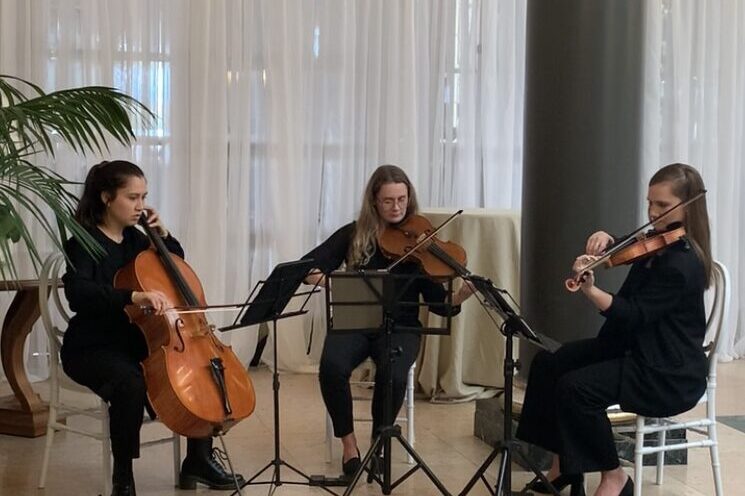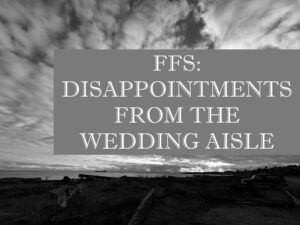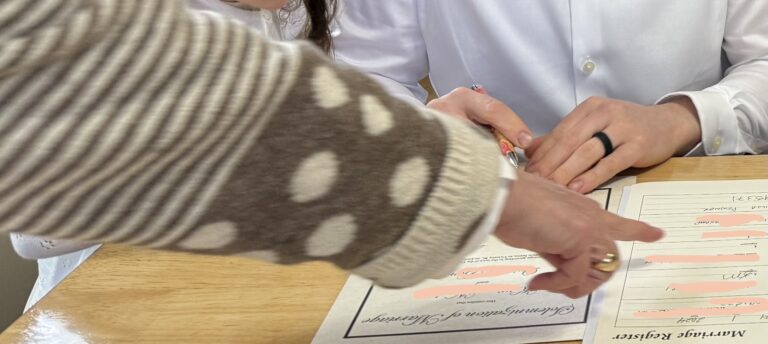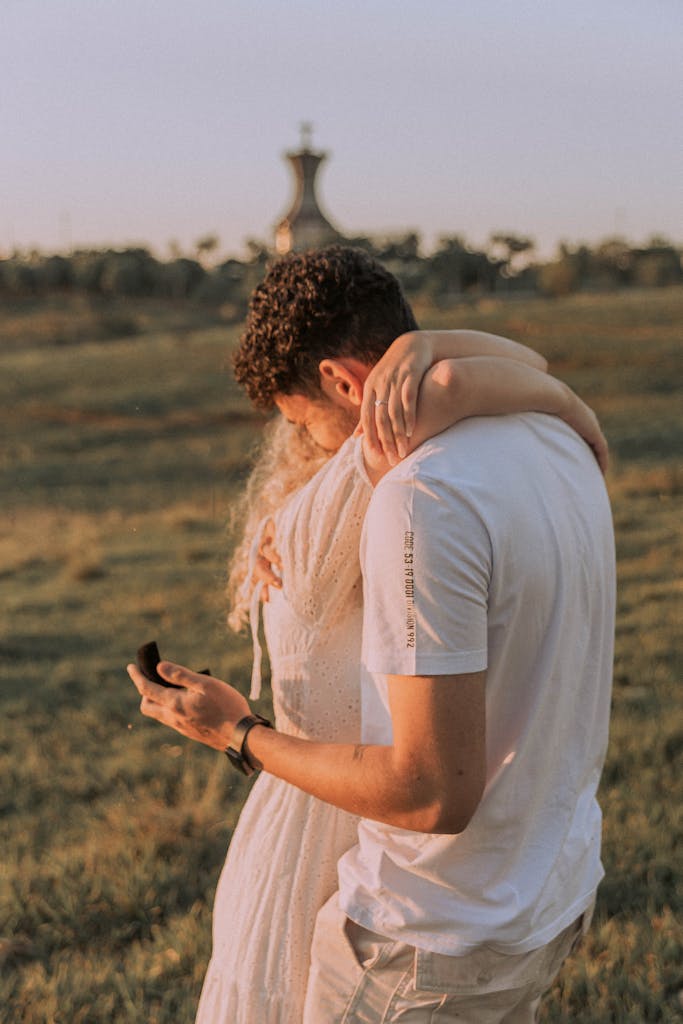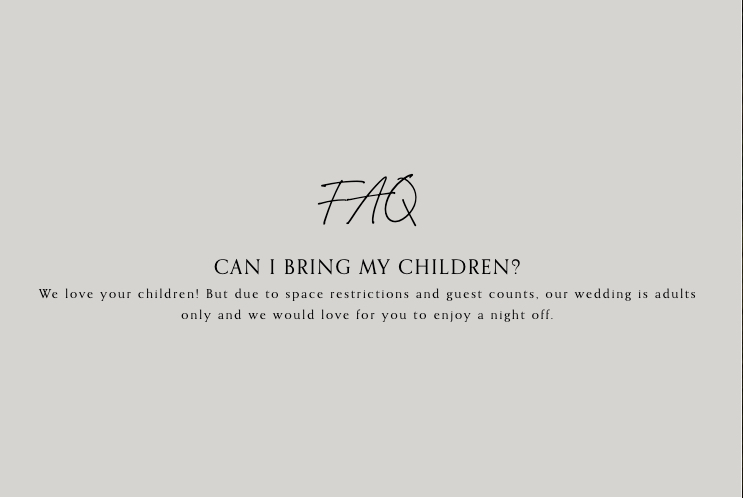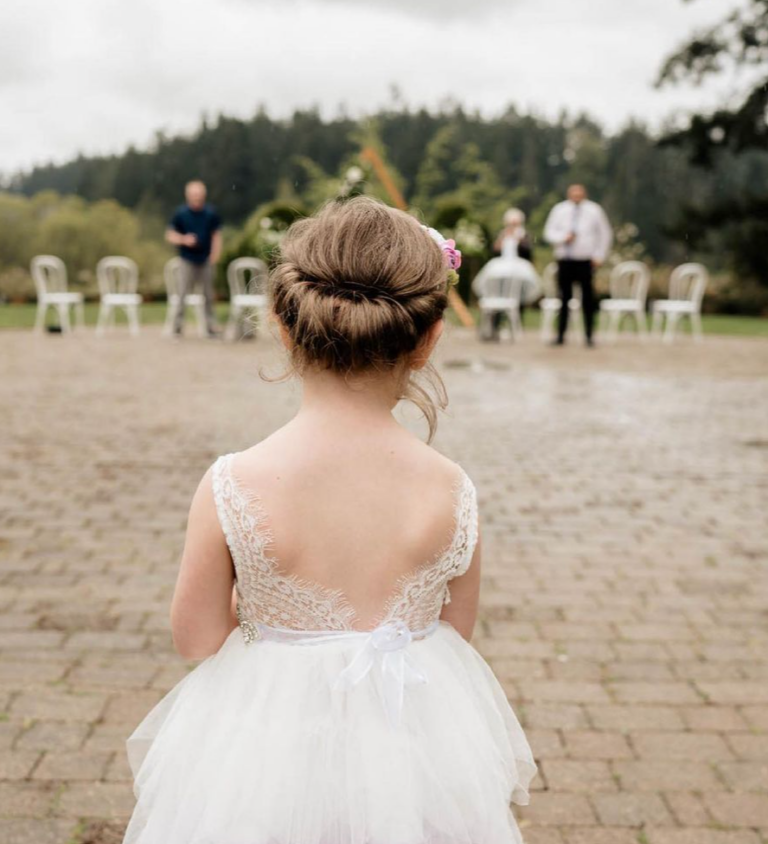Picture this. It is a blistering hot day. Everyone is sitting in the scorching sunshine on a resort balcony overlooking a picturesque bay. The officiant announces the procession of the bride and the violinist starts to play…everyone, and I mean everyone, smiles in sheer delight because they recognize the music! The bride has decided to go with the traditional “Here comes the bride,” the Bridal Chorus by Wagner. 🎶Dum dum da dum…🎶 You know the one.
The music is recognizable and familiar to the guests. It sets the tone for the ceremony: everyone is delighted and suddenly, the intense heat seems bearable.
Music is important in a wedding ceremony for many reasons. It’s one way to bring everyone together. It’s a shared experience in the moment. It should foster a sense of joy in all those present. Sometimes music choices acknowledge the cultural and/or religious traditions, creating a sense of continuity and belonging. Certainly, music enhances the emotion of the event; a meaningful song or special melody makes magical moments even more poignant and memorable. Take your guests on an emotional roller coaster with the music you choose.
There are a few key moments in the ceremony when music marks significant moments or transitions: the entrance (processional) of the attendants and the marriers, during the signing, and the recessional (exit).
Many couples want the music to reflect their personalities, and they choose music that they feel conveys their love story.
Music is typically delivered by live musicians, by a DJ using their sound board set up, or a person pressing play on a device.
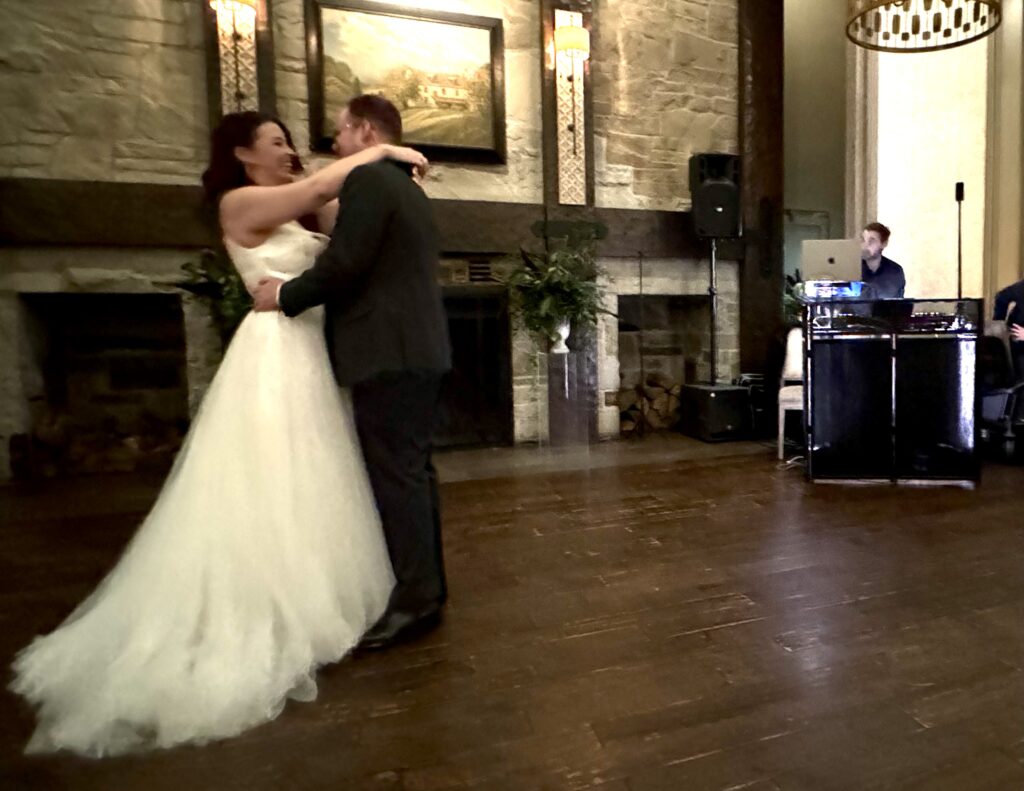
Live music and DJs are this officiant’s preferences. They are the pros. They know what they’re doing. Their equipment works – and if something goes wrong, they usually have immediate solutions or alternatives. (Of course there are exceptions – see disappointments below.) I talk to the music providers before each ceremony and give them a “cue card” outlining the ceremony elements, showing where and when to play/fade/stop. It’s just a helpful guide.
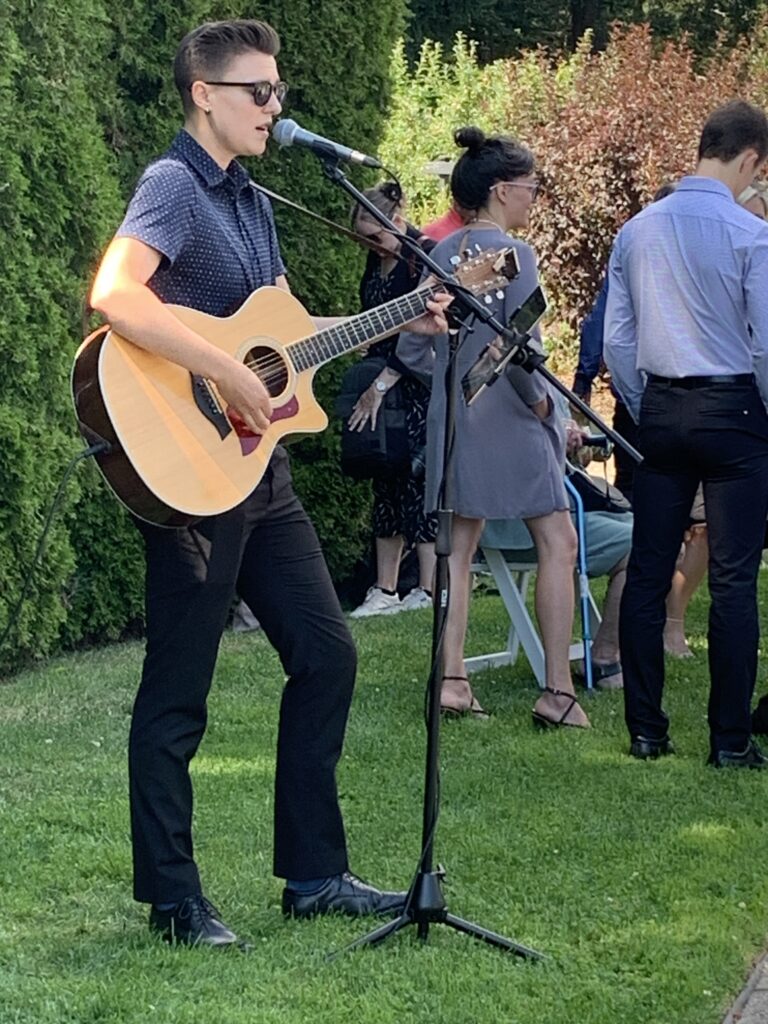
Having a guest operate a device is a wildcard for many reasons. If the music is important to you, think twice about this choice. The person must have a good attention span and good skill with devices. No, one of the marriers can NOT do the music, too. And No, it should not be anyone in the wedding party.
This is my advice for music at your wedding ceremony. First, let me qualify my words here. Remember, I am there at the front watching the reactions of your guests for the processional (and as a former teacher, I have eyes everywhere.)
Here goes with the advice.
#1 Choose music everyone will recognize. If it’s a popular song, select the version that is instantly identifiable. People often choose instrumental versions of songs, and hardly anyone recognizes them. If you have very specific choices that are particularly meaningful to you, have a little program for your guests that explains the ceremony elements and tells your music choices (and maybe even why you chose that song. You can even print the program on a fan – but that’s another topic!)

#2 Volume: the music must be heard! For the mood to be enhanced by the music, it needs to be loud enough that it can be heard by everyone, and not too loud to drown out conversation, especially pre-ceremony. If the music is DIY, test the speakers in the ceremony space for volume and positioning, and do it in advance of the wedding day. Live musicians and DJs will do a sound check and adjust accordingly. The recessional needs to be LOUD and RAUCOUS. You’re CELEBRATING!!!! Make some noise!!!
#3 Timing. The song needs to start at the right spot in the ceremony and stop when it should. NO DEAD AIR. The stopping can be a gradual fading out or an abrupt stop. (Guess which I prefer?)
At the end of the ceremony I love hearing comments like this: “I was fine until I heard the music and then the tears started.” “That exit song was SO them!” “I loved that song they played during the signing!” YAY!!!!
Take your guests on an emotional roller coaster with the music you choose. They may not remember details, but they’ll remember how it made them FEEL.
Tragedy #1 Music suddenly cuts out as soon as both marriers are together at the arch. This results in DEAD AIR as outfits are adjusted, positions are fine-tuned, flowers are handed over and hands are joined The couple need a second to take each other in and have a breath. The music must continue until we’re ready to begin. DEAD AIR is so awkward.
Tragedy #2 Music played by someone on a device was not “fine” after all. The designated person was loaded. The bluetooth speaker wouldn’t connect. The speaker isn’t loud enough. Wrong playlist. The person wasn’t paying attention and missed all the cues. DEAD AIR while trying to figure things out. Connections to speaker are lost. Wind blows away all the sound. Music starts in wrong place in song and/or wrong place in the ceremony. Music is cut off abruptly and/or in wrong place, ETC.
BIG Tragedy #3 “We hired this new DJ because they’re less expensive.” A substitute DJ showed up in casual, rumpled clothing for a formal wedding. DJ was late and didn’t do a sound check. Music could only be heard by guests closest to the DJ booth. DJ did not play the arrangements the couple selected and didn’t start the music in the right spot. DJ missed all the cues in the ceremony, breaking the NO DEAD AIR rule. It was a sh*t show. Check and verify the reviews.
Tragedy #4 Couple complained that the string trio sat under a canopy tent, wrecking the “look” of their ceremony. Stringed instruments are sensitive to heat. Playing in direct sun means they will be out of tune in no time. Be sensitive to the needs of your musicians. Their instruments are valuable. Real Life is different than movies.

